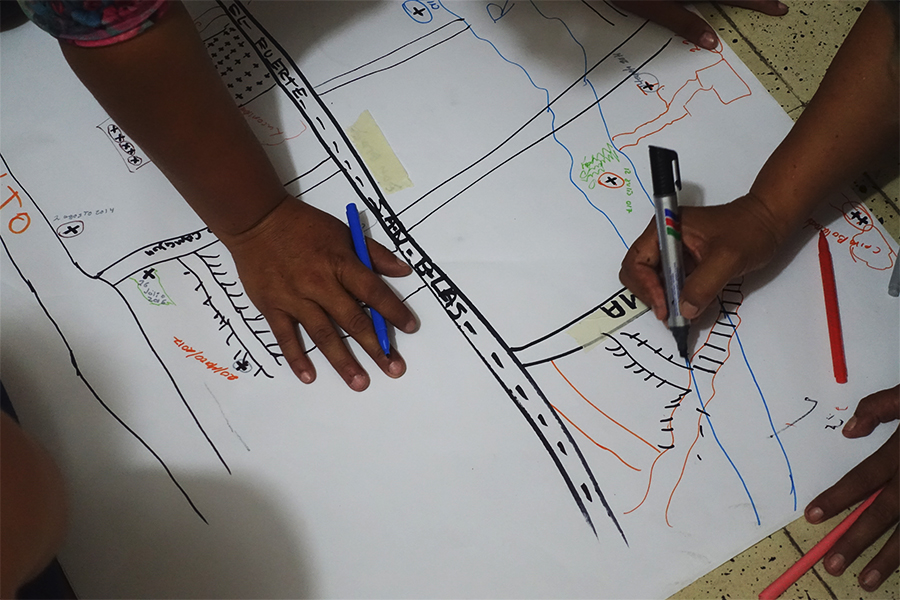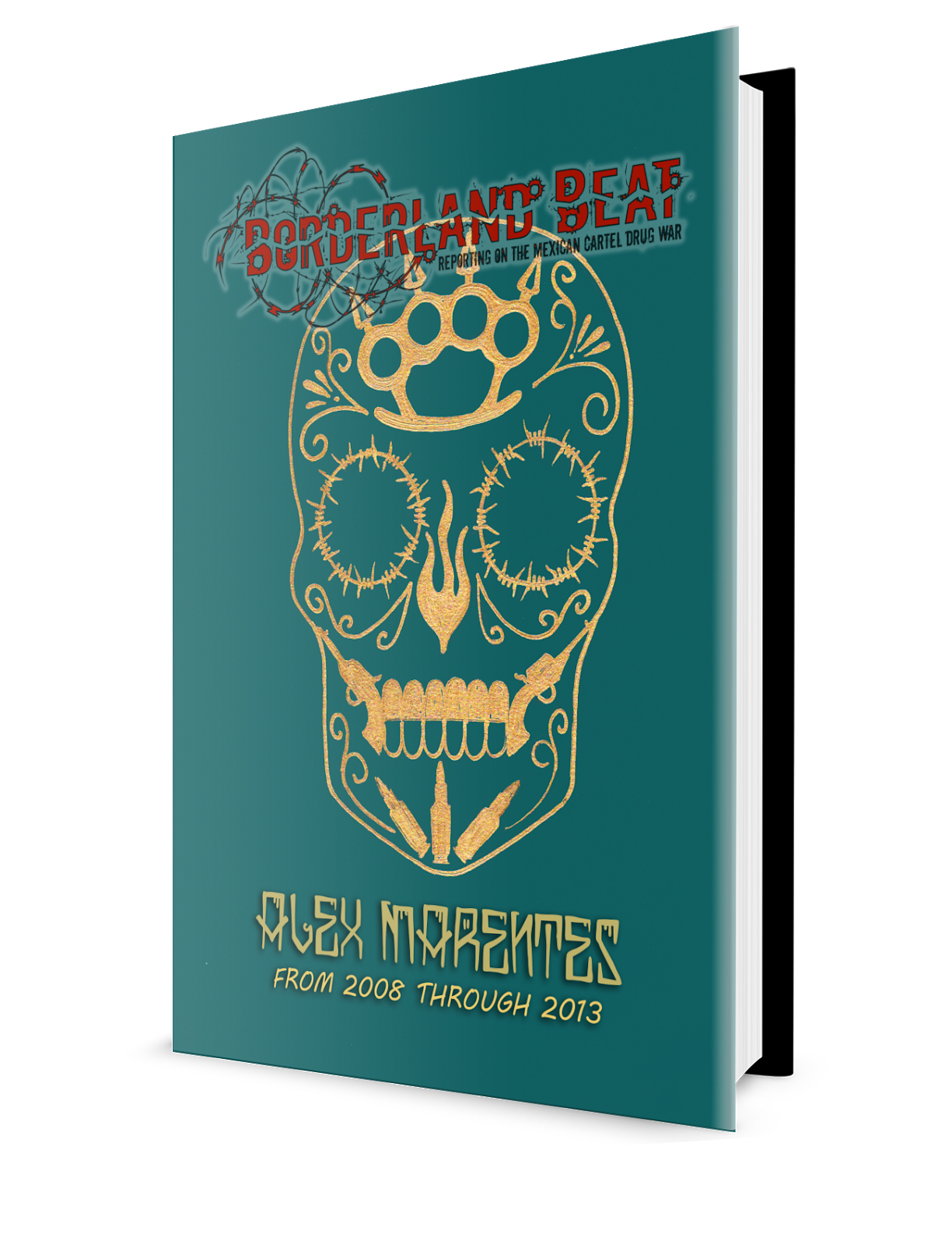
Mothers
are experts in the knowledge of their children's bodies, in their
medical histories, and in their daily practices, which are part of what
forensic sciences call antemortem information.
By R. Aída Hernández Castillo (CIESAS-GIASF)
Photographs: Social and Forensic Anthropology Research Group (GIASF)
In the last two years I have joined the walk of organizations
of relatives of the disappeared, constituted mainly of mothers and
wives, who, faced with the inability of the Mexican State, have taken
on the task of searching for the human remains of their relatives in
clandestine graves.
As happened with the Mothers of Plaza de Mayo in Argentina, or with the
Mutual Support Group in Guatemala, it is mostly mothers who have
mobilized in the search for their children, politicizing their maternal
identities to transform all the disappeared men and women into their sons
and daughters.
The labeled T-shirts used in the marches or in the search days have
changed from "I will look for you until I find you" to "We will look
for them until we find them."
Their identity as "mothers" has been politically mobilized in order to obtain
the solidarity of civil society and the logistical support of local
institutions in the face of what they consider a "relative protection" of organized crime groups that control the area. (1)

She was convinced that if she had been allowed to touch her son's skull, she would have been able to recognize it with touch. "My fingers know every inch of that head. I've seen him and felt transformed since I first took him in my arms when he was born. You do not know how many times I stroked his head when he leaned on my legs," she argued.
When I shared this story with a forensic physical anthropologist
colleague, she smiled incredulously at what seemed to be a more
sentimental anecdote about the stories of relatives of the disappeared.
The conviction of the mother and the disbelief of the physical
anthropologist made me reflect on the hierarchies of knowledge that
have been established in the forensic field and on the need to recognize
the knowledge and experiences of the relatives in any project of truth
and justice that can be promoted.
In the historical moment that we are living in Mexico, where some
spaces for the search of justice seem to be opening up, it is a priority
to listen to those who have more experience in the search and finding
of disappeared persons: family organizations.
Faced with the temptation to export models of transitional justice that
do not consider the historical, cultural, and regional specificities,
the local knowledge of the relatives is fundamental not only for the
search and identification of the disappeared, but also for the
development of alternative forms of transformative justice.
As academics committed to social justice, we have the responsibility to
confront the hierarchies of knowledge that have been established with
the so-called "forensic turn" (2) that has institutionalized a pyramid
of knowledge that has genetics at the top, followed by physical
anthropology and archeology; and in the lower part of the pyramid the
social sciences.
Scientific knowledge has been imposed on the local knowledge of
relatives, who are seen as mere "testimonies of secondary victims."
In our experience working with an organization of mothers and wives of
the disappeared known as Las Rastreadoras del Fuerte, we have carried
out Memory Workshops that have been fundamental for the documentation of
their findings and the subsequent georeferencing of the graves they
have found.
These spaces have allowed us to recognize the deep knowledge that the
members of this organization have, not only of the physical geography of the North of Sinaloa, but also of the political and social context that
enables and reproduces violence. On top of the creation of maps, knowledge has been shared about the origins and manifestations of the different types of violence in the
territories.

Appropriating the forensic knowledge obtained in the multiple spaces of
confluence and formation of the movement of relatives of the
disappeared, and using their local knowledge about the geography of
violence, Las Rastreadoras have begun to destabilize the hierarchies of
knowledge established by the "forensic," legitimizing their own
knowledge.
Only from a respectful dialogue that recognizes different
experiences and knowledge, as well as the different ways of being and occupying space in the world, and the different ways of imagining justice, can we
contribute to the construction of a comprehensive and inclusive peace
agenda that our country so urgently needs.
*
The Research Group in Social and Forensic Anthropology (GIASF) is an
interdisciplinary team committed to the production of socially and
politically relevant knowledge about the forced disappearance of people
in Mexico. In
this column, Con-ciencia, members of the Research Committee and
students associated with the Group's projects participate (See more: www.giasf.org )
(1) This position assumes the existence of some kind of ethical-moral
reserve in the perpetrators of violence, who will respect the figure of
the mother.
However, the "pedagogy of terror" has crossed all ethical and moral
limits. Respect for "the Mexican mother" is no longer part of the code of the assassins, nor of the security forces with which they
are colluded.
The mothers of the disappeared are at the center of the violence, as
shown by the murders of Marisela Escobedo in Chihuahua, Sandra Luz
Hernández in Culiacán, Miriam Rodriguez in Tamaulipas, and Cornelia San
Juan in the State of Mexico, to name the best known cases.
(2)
The term in English that has popularized is "forensic turn." Ror a critical reflection on this paradigm, the work of
the Spanish anthropologist Francisco Ferrandez in
politicasdelamemoria.org can be consulted.









Completely sad and heartbreaking... these mothers need some form of closure... that final last touch of their loved one.... maybe this is the story of the drug war people do not want to acknowledge and live in denial about...
ReplyDeleteGC